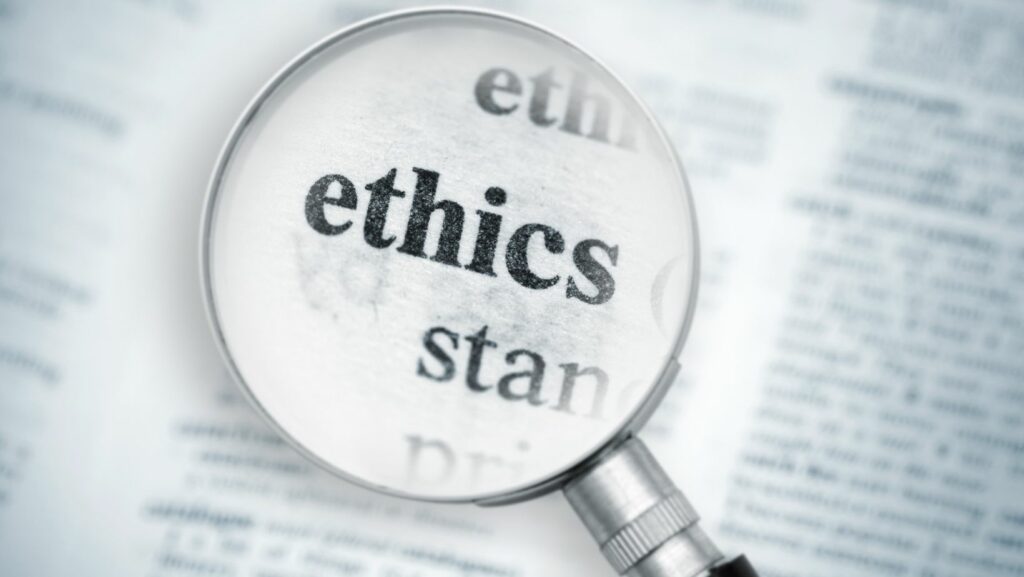Media Ethics: Key Principles for Responsible Practice Patrick Lee Plaisance PDF Free Download
- Understand Core Principles: Familiarity with key media ethics principles—truthfulness, accuracy, fairness, and accountability—is essential for responsible journalism and effective communication.
- Promote Trust and Credibility: Ethical reporting that emphasizes truthfulness and accuracy helps build trust between media professionals and their audiences.

- Uphold Independence: Maintaining objectivity and independence from external influences is crucial for journalistic integrity and accountability.
- Prioritize Minimizing Harm: Ethical considerations should include the potential impact of reporting on individuals and communities, ensuring dignity is preserved.
- Embrace Transparency: Clear disclosure of sources and methodologies enhances credibility and promotes public trust in media institutions.
- Equip Yourself for Challenges: Understanding media ethics aids in navigating challenges like misinformation, sensationalism, and diverse representation in modern journalism.
In an era where information spreads faster than ever, understanding media ethics is crucial for anyone involved in communication. Patrick Lee Plaisance’s work on media ethics highlights essential principles that guide responsible practice in journalism and beyond. These principles not only foster trust between media professionals and the public but also ensure that content is created with integrity and respect.
For those seeking to deepen their understanding of this vital topic, the PDF version of Plaisance’s insights offers a valuable resource. By exploring key ethical frameworks, readers can better navigate the complexities of modern media landscapes. This article delves into the core tenets of media ethics and provides information on accessing the PDF for free, empowering individuals to uphold ethical standards in their work.
Overview of Media Ethics
Media ethics encompasses the principles that guide responsible journalism and communication practices. Understanding these principles is crucial for media professionals to build and maintain public trust. The primary tenets include truthfulness, accuracy, fairness, and accountability.
- Truthfulness: Ensuring accuracy in reporting helps uphold the integrity of information. Verifying facts before dissemination serves as a cornerstone of ethical journalism.
- Accuracy: Presenting information correctly prevents misinformation. Media professionals must check the reliability of sources and provide context to their stories.
- Fairness: Representing diverse perspectives ensures balanced reporting. Ethical media practice includes giving voice to multiple stakeholders involved in a story.
- Accountability: Media professionals are accountable for their work. They must take responsibility for errors and strive to correct them promptly.
- Independence: Remaining unbiased is essential. Journalists should avoid conflicts of interest that can compromise their objectivity.
- Minimizing Harm: Ethical journalists prioritize the dignity and welfare of individuals. They consider the potential consequences of their reporting on subjects and communities.
- Transparency: Clear disclosure of sources and methodologies strengthens credibility. Openness about potential biases enhances public trust in media institutions.
By adhering to these principles, media professionals contribute to an informed society that values ethical standards in communication. The insights provided by Patrick Lee Plaisance offer valuable guidance for navigating these challenges in modern media.
Key Principles of Media Ethics
Understanding the key principles of media ethics is essential for responsible journalism. These principles guide ethical communication and foster public trust.
Truthfulness and Accuracy
Truthfulness and accuracy stand as foundational principles in media ethics. Media professionals must strive to report facts correctly, avoiding embellishments or distortions. They must fact-check information and provide sources whenever possible. For instance, using reliable data from reputable studies helps establish credibility. By prioritizing truthfulness, media professionals build trust with audiences and enhance the quality of public discourse.
Independence and Accountability
Independence and accountability are crucial for maintaining objectivity in media practices. Journalists must remain free from outside influences, such as political pressure or corporate interests, ensuring unbiased reporting. This independence allows professionals to hold power structures accountable. Transparency in sourcing and decision-making processes reinforces this accountability. For example, clearly identifying conflicts of interest or disclosing sponsors fosters a responsible media environment, promoting informed public engagement.
Patrick Lee Plaisance’s Contributions
Patrick Lee Plaisance significantly enhances the field of media ethics through his comprehensive exploration of key principles guiding responsible journalistic practices. His insights serve as foundational knowledge for media professionals navigating ethical dilemmas in today’s information landscape.
Summary of Key Concepts
Plaisance identifies essential concepts that underpin media ethics. These include:
- Truthfulness: Emphasizes the necessity of accurate reporting to maintain trust between journalists and the public.
- Accuracy: Stresses fact-checking as a critical responsibility for media professionals to uphold integrity.
- Fairness: Advocates for balanced representation of different perspectives and voices.
- Accountability: Encourages media practitioners to take responsibility for their reporting and its impact.
- Independence: Highlights the importance of remaining free from external pressures to ensure unbiased reporting.
- Minimizing Harm: Suggests strategies for reducing potential damage to individuals and communities in reporting.
- Transparency: Calls for openness in sourcing and decision-making to reinforce credibility.
Each of these key concepts plays a pivotal role in fostering ethical journalism and guiding professionals toward responsible practices.
Importance in Modern Media
Plaisance’s contributions are crucial in addressing challenges faced by media professionals today. The rapid dissemination of information often complicates ethical considerations. By adhering to Plaisance’s principles, journalists cultivate trust and maintain credibility in reporting.
In an era characterized by misinformation and sensationalism, his emphasis on accountability and transparency empowers media practitioners to navigate complex ethical landscapes effectively. Implementing these principles not only enhances individual practice but also reinforces the overall integrity of the media industry.
Benefits of Understanding Media Ethics
Understanding media ethics provides numerous advantages for media professionals and the public alike. Recognizing core principles enhances the communication landscape.
- Enhanced Credibility
Ethics knowledge increases transparency. Media professionals maintain trust with audiences by committing to truthfulness and accuracy in reporting.
- Informed Decision-Making
A solid grasp of ethical principles enables media practitioners to make informed choices. They navigate complex situations by weighing factors like fairness and accountability.
- Professional Integrity
Familiarity with media ethics reinforces a commitment to integrity. Media professionals uphold standards that reflect positively on their work and the industry as a whole.
- Public Trust
Adhering to ethical guidelines fosters public confidence. When media outlets consistently apply principles such as independence and minimizing harm, they build stronger relationships with their audience.
- Accountability Mechanisms
Understanding media ethics equips journalists with frameworks for accountability. They own their reporting decisions, resulting in greater responsibility to the public.
- Counteracting Misinformation
Knowledge of ethical standards helps combat misinformation. Media professionals dedicated to accuracy can challenge false narratives and promote an informed public discourse.
- Cultural Literacy
Familiarity with ethical principles encourages diverse representation. Media professionals develop content that reflects various perspectives, promoting inclusivity in reporting.
Embracing media ethics leads to a more responsible and trustworthy information environment, benefiting both media practitioners and society as a whole.
Challenges in Practicing Media Ethics
Media professionals face several challenges in practicing media ethics effectively.
- Misinformation: The rapid dissemination of false information complicates the ability to report truthfully. Journalists must verify facts before publication to combat the spread of misinformation.
- Pressure to Perform: Competitive news environments create pressure for journalists to produce content quickly, often at the expense of accuracy. This urgency can result in errors and neglect of ethical standards.

- Sensationalism: The trend towards sensational content can compromise journalistic integrity. Media outlets prioritize click-worthy stories over responsible reporting, undermining public trust.
- Conflict of Interest: Personal biases or external influences can jeopardize journalistic objectivity. Maintaining independence becomes crucial in handling sensitive topics.
- Censorship and Restrictions: Journalists often face governmental or organizational censorship that limits their ability to report freely. These restrictions challenge the principle of transparency in reporting.
- Diverse Perspectives: Representing diverse communities poses a challenge in ensuring fair coverage. Media professionals must strive for balanced representation to uphold ethical standards.
- Digital Ethics: The rise of social media and digital platforms introduces complexities in ethical reporting. Journalists must navigate these platforms responsibly, respecting privacy while engaging audiences.
Each of these challenges requires careful consideration and proactive measures. Adhering to established ethical principles fosters trust, accountability, and credibility in journalism.
Credibility With Audiences
Understanding media ethics is essential for today’s journalists. By embracing the principles outlined by Patrick Lee Plaisance, media professionals can navigate the complexities of their field with integrity. Upholding truthfulness, accuracy, and accountability fosters trust and credibility with audiences.
As misinformation and sensationalism continue to challenge the industry, adherence to ethical standards becomes even more critical. By prioritizing transparency and minimizing harm, journalists can ensure diverse representation and responsible reporting.
Ultimately, a commitment to these ethical practices not only enhances the media’s credibility but also contributes to a more informed society. Engaging with Plaisance’s insights equips media practitioners to face the evolving landscape of journalism while maintaining their professional integrity.

